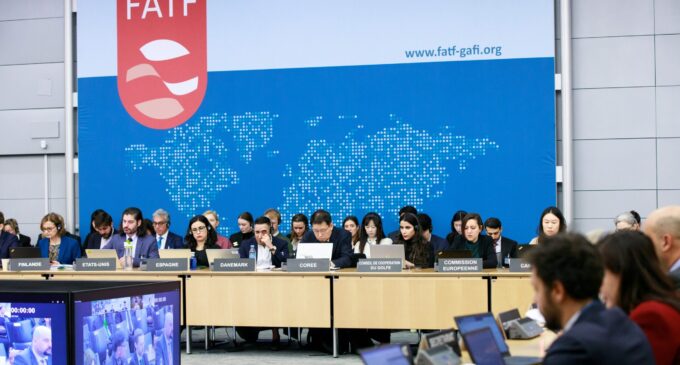Finance
Nigeria, South Africa Added to Anti-Money Laundering Watchlist
Published
3 years agoon

Worries are mounting amongst stakeholders as Africa’s two largest economies, Nigeria and South Africa, have been included in the Financial Action Task Force’s (FATF) money laundering grey list, claiming both have much to do to meet global standards.
FATF’s grey list comprises countries under increased monitoring by the Paris-based organization.
Read Also:
Being added to the list can impact a country’s global financial reputation and, in the long term, can reduce its chance of obtaining funding from development institutions.
The economy of a greylisted nation might also suffer as international organisations would have to audit companies and take extra steps before investing in the country.
This could be especially significant for Nigeria, as the country’s foreign direct investment (FDI) has been fluctuating for the past few years.
Nigeria’s inclusion in the grey list comes at a time when the country is struggling under the weight of severe cash shortage and one of its most fiercely contested elections.
Business Metrics had reported that the Africa’s largest economy recently redesigned its 200, 500, and 1,000 naira notes.
In its bid to exchange the old paper notes for new ones, the Central Bank of Nigeria (CBN) has sunk the country into a cash shortage that has almost grounded its economy to a halt.
Nigeria government didn’t immediately respond to the inclusion in the grey list, even as Nigerians took to the polls on February 25.
In its response, South Africa’s Reserve Bank (SARB) said that it has greatly enhanced its anti-money laundering crackdown. The bank claims to have engaged in a substantial effort, together with the National Treasury, to “address the recommended actions contained in the FATF Mutual Evaluation Report (MER) of South Africa, within the 12-month observation period.”
Under enhanced financial scrutiny, the central bank pledged to strengthen its supervision and enhance “the dissuasiveness and proportionality of administrative sanctions issued.”
“We see limited market and growth impacts short run, but this will grow over time if foreign banks think SA (South Africa) will be stuck on the list,” commented Peter Attard.
Attard, who is the managing director at research firm Intellidex, described the move as “deeply unfortunate” but “ultimately avoidable.”
“It would be wishful thinking to think South Africa is off the list within a year unless there is now a proper step up in efforts to turn the situation around.”
Share this:
- Click to share on X (Opens in new window) X
- Click to share on Facebook (Opens in new window) Facebook
- Click to share on WhatsApp (Opens in new window) WhatsApp
- Click to share on Pocket (Opens in new window) Pocket
- Click to share on Telegram (Opens in new window) Telegram
- Click to email a link to a friend (Opens in new window) Email
- Click to share on LinkedIn (Opens in new window) LinkedIn
You may like


Nigerian Banks Set New Target to Respond to Frauds


NCC, CBN Introduce 30-Second Refund Rule for Failed Airtime and Data Purchases


Banks’ N1.96Trn Black Hole: Who Took the Loans, Who Defaulted, and Why the Real Economy Suffers


How Policy Missteps Weigh Down Nigeria’s Fragile Banking Giants


Nigeria at 65: A Nation Still Waiting for a Banking Revolution


Nigeria’s Banking Woes: How One South African Bank Outvalues an Entire Industry












